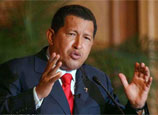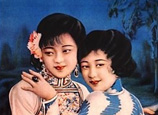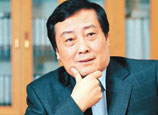
BEIJING, March 6 (Xinhua) -- China's top foreign exchange regulator Yi Gang said Wednesday that the yuan exchange rate has been decided by the market and requires little intervention from monetary authorities.
The yuan's value has come very close to a balanced level and it will become more balanced, more flexible and remain basically stable this year, said Yi, head of the State Administration of Foreign Exchange (SAFE), on the sidelines of the annual session of China's top political advisory body.
Since China started reforming its exchange rate regime in 2005 to make its currency more flexible and market-oriented, the yuan has appreciated by more than 30 percent against the U.S. dollar.
The People's Bank of China (PBOC), the central bank, announced in April last year that the currency's daily trading limit would be widened against the U.S. dollar to 1 percent from 0.5 percent, allowing Chinese banks to exchange the yuan at 1 percent above or below the central parity set by the China Foreign Exchange Trading System in daily spot market trading.
Due to a reduced trade surplus and capital outflow, the yuan has been under significant depreciation pressure since September last year, ending a longstanding one-way appreciation trend.
The yuan gained 52 basis points to 6.27 in its central parity against the U.S. dollar on Wednesday.
"The supply and demand for yuan is by and large balanced and monetary authorities will not have to intervene too much," said Yi, who is also the central bank's vice governor.
Economies in the Asia-Pacific region, however, are under increasing pressure to devalue their currencies to keep their exported goods competitive, as well as prevent the massive inflow of speculative funds due to quantitative easing in developed nations, particularly an expansionary monetary policy adopted by Japanese Prime Minister Shinzo Abe that has raised concerns about a looming worldwide currency war.
The Japanese yen has depreciated more than 15 percent against the U.S. dollar over the past two months since Abe became Japan's new prime minister.
As a sign of increasing capital inflow amid China's accelerating economic growth, Chinese financial institutions saw their yuan funds outstanding for foreign exchange increase by 683.7 billion yuan (108.9 billion U.S. dollars) in January, the highest monthly increase on record, data from the PBOC showed Tuesday.
As of the end of January, Chinese financial institutions' total yuan funds outstanding for foreign exchange amounted to 26.5 trillion yuan, according to the PBOC data.
Since capital accounts are still tightly controlled by the state in China, the PBOC and commercial banks have to buy large quantities of foreign exchange to stabilize the yuan's exchange rate, resulting in loose liquidity in China's domestic market.
Zhou Xiaochuan, the PBOC's governor, said Wednesday that funds outstanding for foreign exchange are closely related to global markets and capital flow amid uncertainty in developed economies.
"The figure (on funds outstanding for foreign exchange) is not stable and we need to take more time to monitor its fluctuations," Zhou said.
Yi said he hopes currency policymakers in the world's major economies will observe a consensus reached at a G20 meeting held last month to refrain from engaging in competitive currency devaluation.
"There is no winner in a currency war," said Yi.
G20 members promised at the meeting that they would not wage a currency war and agreed that monetary policies should primarily serve as a tool for domestic economies.
China is fully prepared for a currency war should one actually occur, Yi said last week.
"In terms of both monetary policies and other mechanism arrangements, China will take the quantitative easing policies implemented by the central banks of foreign countries into full account," he said.
















 Missing baby killed in Changchun | Photos: Local residents mourn for killed baby
Missing baby killed in Changchun | Photos: Local residents mourn for killed baby


![]()
